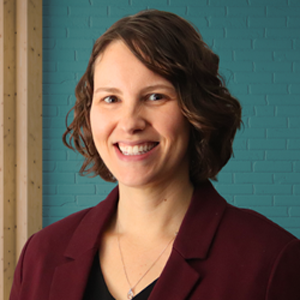More than 160 people from across Canada gathered at the ninth annual Vital Church Planting Conference, held Jan. 29-31 at St. Paul, Bloor Street. This year’s conference, co-sponsored by the Diocese of Toronto and Wycliffe College’s Institute for Evangelism, featured 14 speakers who shared stories about fresh expressions of church in a Canadian context.
“It starts with listening, serving needs, building community and making disciples where there’s potential for them to become ‘church,’” said the Rev. Ryan Sim, the conference organizer.
The importance of forming authentic relationships emerged throughout the conference. For the Rev. Jasmine Chandra and the Rev. Terence Chandra, a married couple starting an inner-city ministry in Saint John, N.B., it has meant walking around their neighbourhood and meeting people “on their own turf.”
“We’ve tried to be in places where we will meet the poor and marginalized. When we walk down the street, we make it a point to say hi to everyone we meet,” said Ms. Chandra. “What’s happened through a lot of this connecting and getting to know people is that God has let us into people’s lives in some very deep ways.”
The conference culminated in Team Day on Saturday, which welcomed about 40 new participants, many of them from parishes looking to start new ministries in their neighbourhoods. More than a dozen parishes from the Diocese and beyond were represented.
William Spotton, a member of St. John, Bowmanville, said he was eager to learn how to reach people who are not currently part of the church. “How could we reach out in a non-intrusive way and invite people in?” he said.
Led by Jared Siebert, national director for church development for the Free Methodist Church in Canada, teams completed several exercises to help them learn how to identify and respond to the values of their parishes and their surrounding communities.
“You have a neighbourhood that has been placed in your care, and it is your responsibility to begin to understand your neighbourhood,” said Mr. Siebert.
Teams were also urged to think about mission as more than one program or committee within their parishes. “With missional churches, somehow part of their soul is expressed through carrying out Christ’s mission,” Mr. Seibert said.
These conversations are also happening at the diocesan level. As a speaker at the conference, Archbishop Colin Johnson said the Diocese has changed the way it looks at many of its ministries. “We’re discovering that social justice and advocacy work is missional. That the chaplaincy work we’re doing is missional. You just have to rethink how we’re doing it and re-imagine it,” he said.
While many speakers acknowledged the difficulty of setting a course or even measuring their success, the tone of the conference was ultimately hopeful.
“It’s encouraging to see so many people from such diverse ministries coming together, trying to figure out how we can better serve God,” said the Rev. Heather Liddell, a Divinity student at Wycliffe College. “It’s beautiful.”



We look ahead with great hope